SCARS™ Recovery: Phases Of Recovery
Scam victims go through a series of phases from the scam to recovery.
Many victims do not make it through all of them and become trapped in denial or anger, preventing them from recovery. Sadly the majority of victims do not recover, but being aware of the process can help you recognize where you are and what steps you need to take to move forward through the process.
THE SCAM
- The scam is underway and the victims is manipulated into believing.
- The scammer isolates the victim from family and friends creating dependency.
- The victim’s very identity is tied to the belief in the reality created by the scammer.
- There may be doubts but the victim rejects them in favor of continued belief in the scam relationship.
THE AWARENESS
- The scam is discovered and the victim goes into shock and hormonal withdrawal.
- Denial and doubt set in – how could this be real?
- Realization of the magnitude of the scam, its impact on the victim personally, their finances, and their future.
- The victim scrambles to understand and find help – someone must be able to help.
THE REJECTION
- The victim begins to experience anger and rage – how could this happen – who is to blame.
- This includes self-hate for allowing it to happen – how could they have been so stupid!
- For many victims hate takes hold and they become vigilantes, saviors, or simply hate themselves.
- They will target anyone that could be to blame and can not ever forgive themselves so they take it out on others.
THE ACCEPTANCE
- With knowledge and comprehension, the victim can forgive themselves for their mistake.
- They are not to blame, the criminal is. They accept the new reality and adjust their future to compensate.
- They seek real support and education to better understand why this could happen and how to realistically prevent it from happening again.
- When they are ready, they can help others make it through the phases.
So many victims of scams make the mistake of believing that recovering is something quick and short. They will recover just by deciding to do it, and then all of the trauma will be gone – sadly this is just a form of denial.
Recovery is a process that can take the average realist victim a year or several. It all depends on how committed each person is to let go of the anger, shame, and self-blame. These are the secrets to a successful recovery.
However, there is another important component of the recovery process. It is recognizing that you might not be able to do it alone, There is no shame in asking for help – a victim may need support, or counseling, or trauma therapy. Regardless of what is needed, get it and do not be ashamed to ask.
Here is what it looks like from a more traditional Grief Model
It is also about making the right choices during recovery
What does this journey look like?
The typical time span for scam victims’ recovery
Now you know!
We wish you well and we want you to know that this is our purpose – to help you recover from the scam!
TAGS: SCARS, Important Article, Information About Scams, Anti-Scam, Scams, Scammers, Fraudsters, Cybercrime, Crybercriminals, Romance Scams, Scam Victims, Phases Of Recovery
SCARS™ Team
Society of Citizens Against Relationship Scams Inc.
A Worldwide Crime Victims Assistance Nonprofit Organization
Visit: www.AgainstScams.org
Contact Us: Contact@AgainstScams.org
PLEASE SHARE OUR ARTICLES WITH YOUR FRIENDS & FAMILY
HELP OTHERS STAY SAFE ONLINE – YOUR KNOWLEDGE CAN MAKE THE DIFFERENCE!
The Latest SCARS Posts:
FIND MORE SCAM NEWS
«SCAMCRIME.COM»
JOIN US ON FACEBOOK
«CLICK HERE»
END
MORE INFORMATION
– – –
Tell us about your experiences with Romance Scammers in our
« Scams Discussion Forum on Facebook »
– – –
FAQ: How Do You Properly Report Scammers?
It is essential that law enforcement knows about scams & scammers, even though there is nothing (in most cases) that they can do.
Always report scams involving money lost or where you received money to:
- Local Police – ask them to take an “informational” police report – say you need it for your insurance
- U.S. State Police (if you live in the U.S.) – they will take the matter more seriously and provide you with more help than local police
- Your National Police or FBI « www.IC3.gov »
- The SCARS|CDN™ Cybercriminal Data Network – Worldwide Reporting Network on « www.Anyscam.com »
This helps your government understand the problem, and allows law enforcement to add scammers on watch lists worldwide.
– – –
To learn more about SCARS visit « www.AgainstScams.org »
Please be sure to report all scammers
on « www.Anyscam.com »
Disclaimer:
SCARS IS A DIGITAL PUBLISHER AND DOES NOT OFFER HEALTH OR MEDICAL ADVICE, LEGAL ADVICE, FINANCIAL ADVICE, OR SERVICES THAT SCARS IS NOT LICENSED OR REGISTERED TO PERFORM.
IF YOU’RE FACING A MEDICAL EMERGENCY, CALL YOUR LOCAL EMERGENCY SERVICES IMMEDIATELY, OR VISIT THE NEAREST EMERGENCY ROOM OR URGENT CARE CENTER. YOU SHOULD CONSULT YOUR HEALTHCARE PROVIDER BEFORE FOLLOWING ANY MEDICALLY RELATED INFORMATION PRESENTED ON OUR PAGES.
ALWAYS CONSULT A LICENSED ATTORNEY FOR ANY ADVICE REGARDING LEGAL MATTERS.
A LICENSED FINANCIAL OR TAX PROFESSIONAL SHOULD BE CONSULTED BEFORE ACTING ON ANY INFORMATION RELATING TO YOUR PERSONAL FINANCES OR TAX RELATED ISSUES AND INFORMATION.
This content and other material contained on the website, apps, newsletter, and products (“Content”), is general in nature and for informational purposes only and does not constitute medical, legal, or financial advice; the Content is not intended to be a substitute for licensed or regulated professional advice. Always consult your doctor or other qualified healthcare provider, lawyer, financial, or tax professional with any questions you may have regarding the educational information contained herein. SCARS makes no guarantees about the efficacy of information described on or in SCARS’ Content. The information contained is subject to change and is not intended to cover all possible situations or effects. SCARS does not recommend or endorse any specific professional or care provider, product, service, or other information that may be mentioned in SCARS’ websites, apps, and Content unless explicitly identified as such.
The disclaimers herein are provided on this page for ease of reference. These disclaimers supplement and are a part of SCARS’ website’s Terms of Use.
Legal Notices:
All original content is Copyright © 1991 – 2020 Society of Citizens Against Relationship Scams Inc. (D.B.A SCARS) All Rights Reserved Worldwide & Webwide. Third-party copyrights acknowledge.
SCARS, SCARS|INTERNATIONAL, SCARS, SCARS|SUPPORT, SCARS, RSN, Romance Scams Now, SCARS|INTERNATION, SCARS|WORLDWIDE, SCARS|GLOBAL, SCARS, Society of Citizens Against Relationship Scams, Society of Citizens Against Romance Scams, SCARS|ANYSCAM, Project Anyscam, Anyscam, SCARS|GOFCH, GOFCH, SCARS|CHINA, SCARS|CDN, SCARS|UK, SCARS|LATINOAMERICA, SCARS|MEMBER, SCARS|VOLUNTEER, SCARS Cybercriminal Data Network, Cobalt Alert, Scam Victims Support Group, are all trademarks of Society of Citizens Against Relationship Scams Inc., All Rights Reserved Worldwide
Contact the law firm for the Society of Citizens Against Relationship Scams Incorporated by email at legal@AgainstScams.org


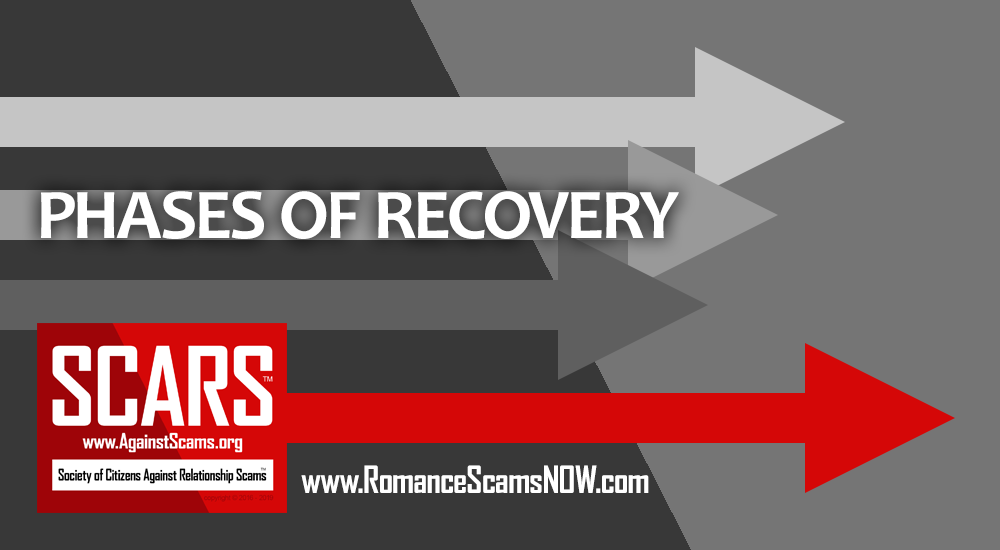
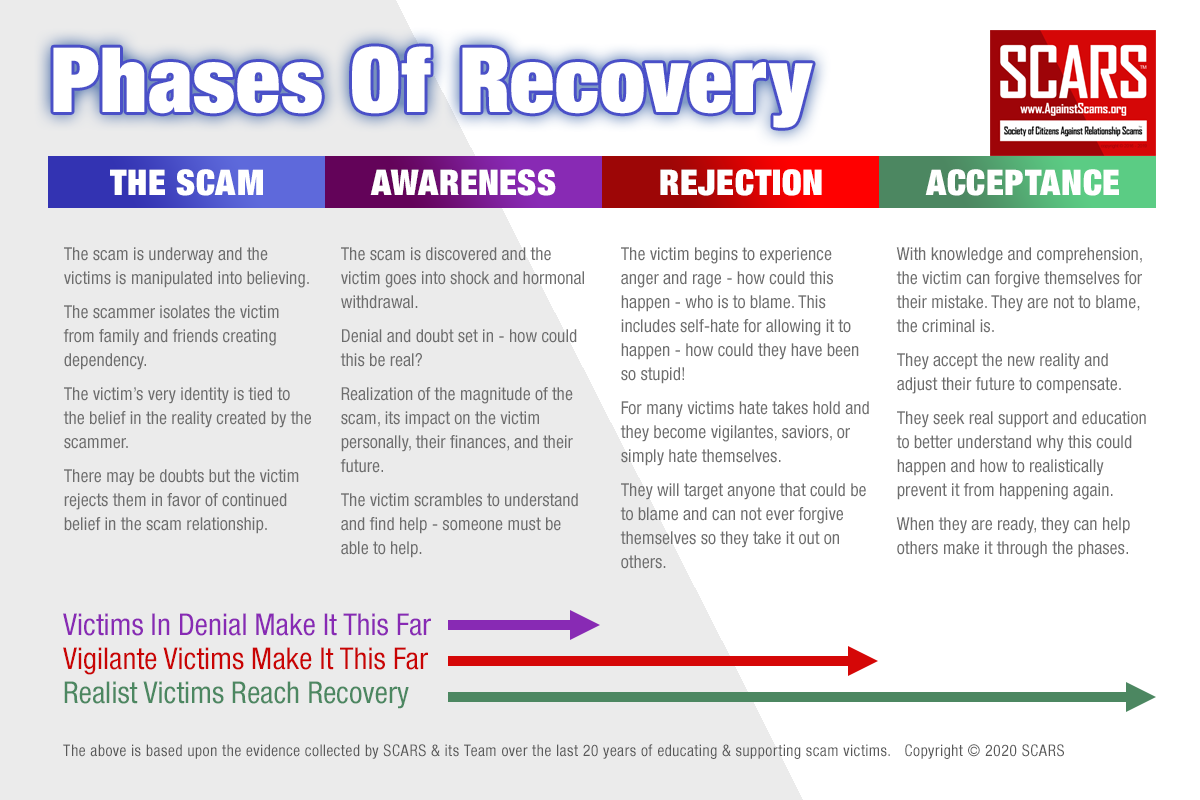
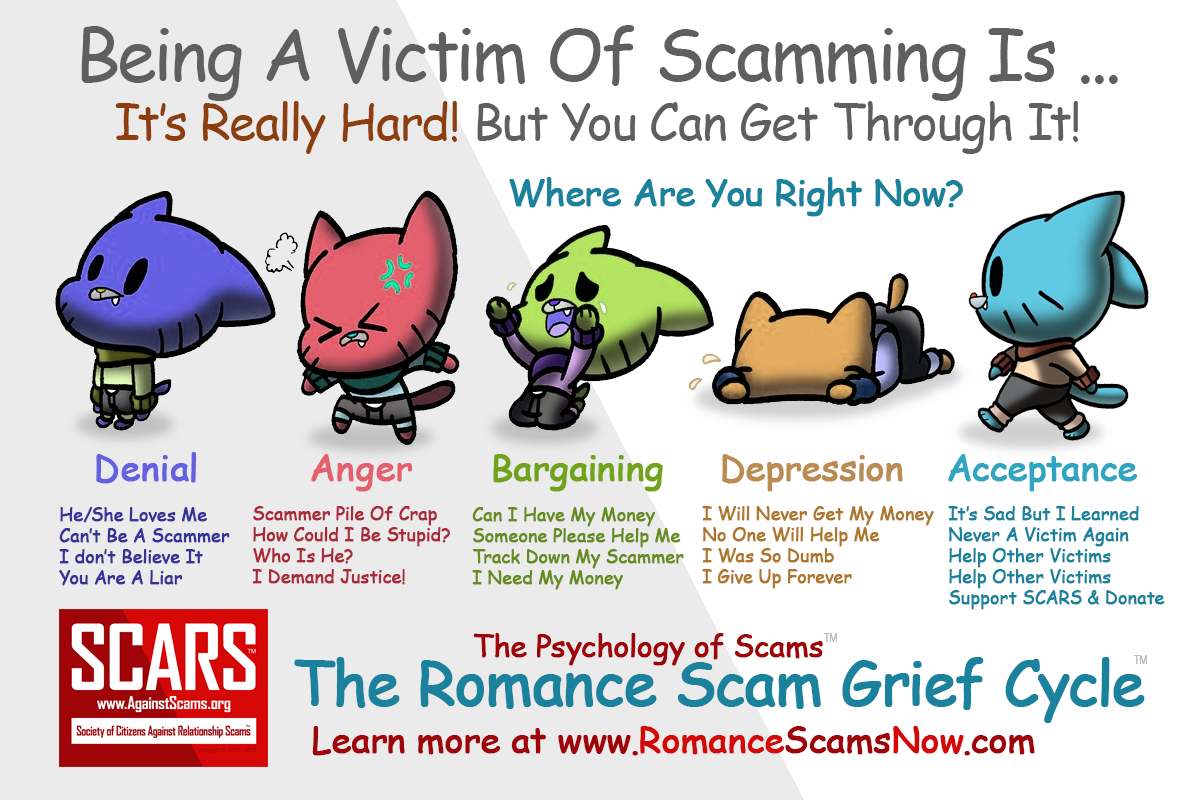
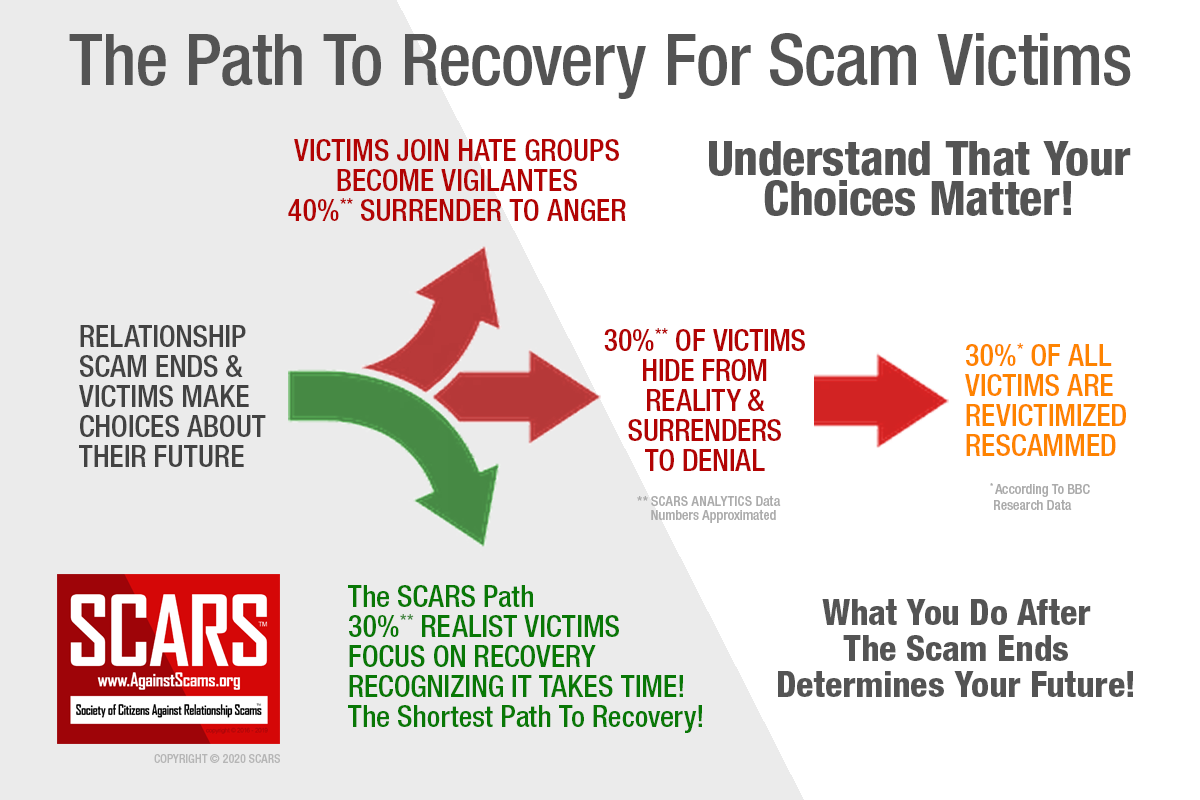
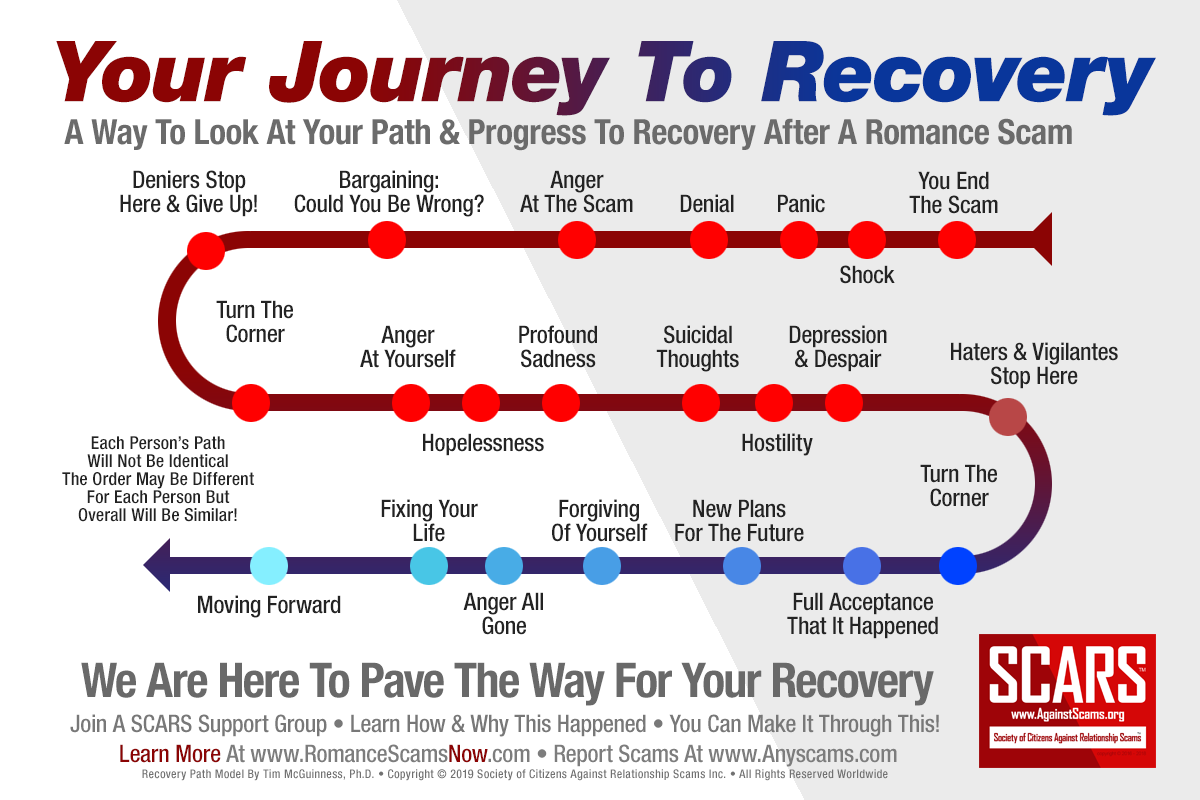


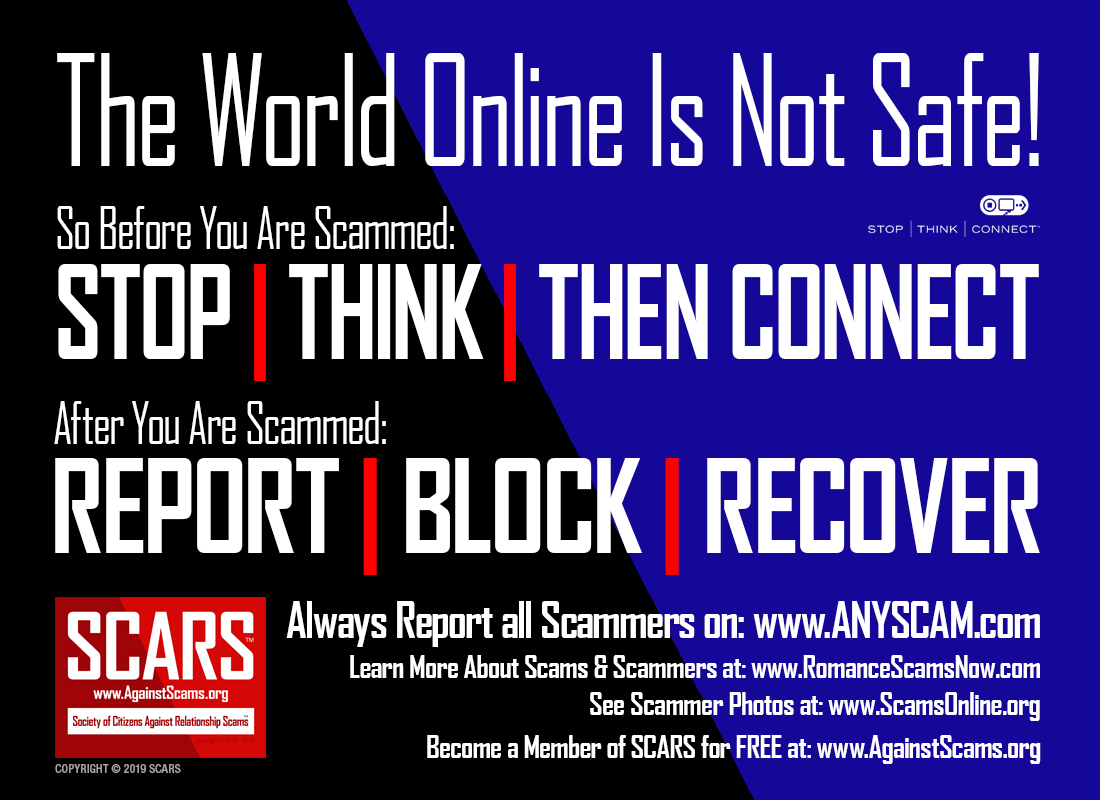

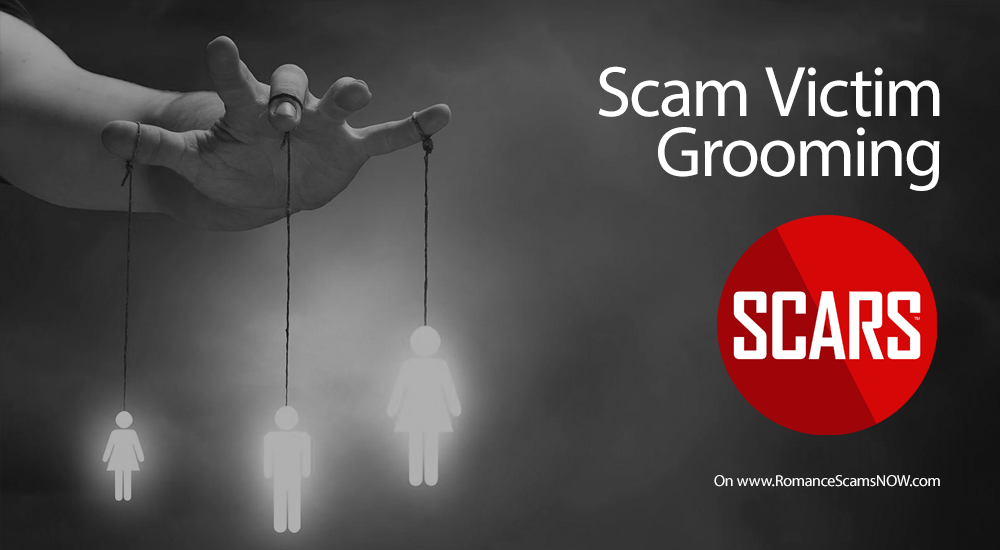
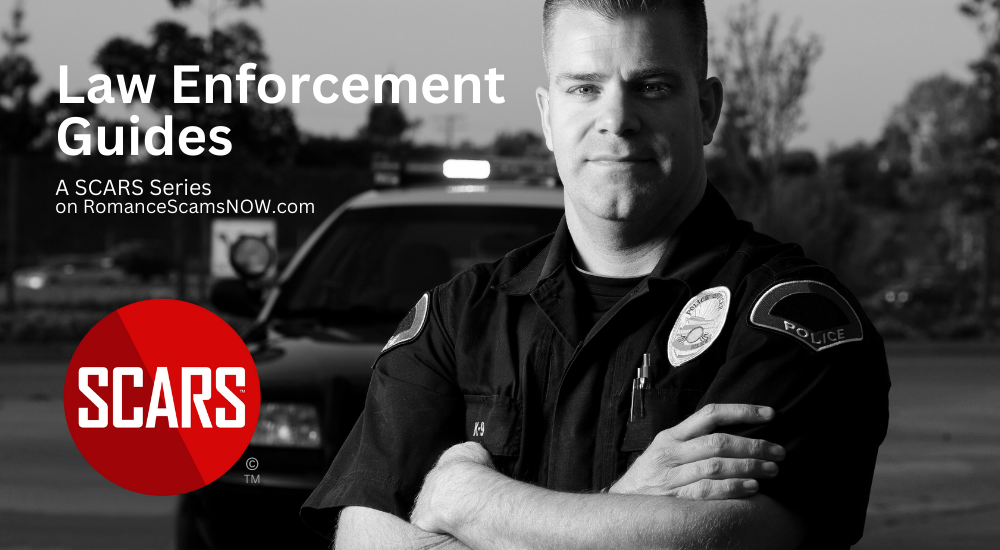
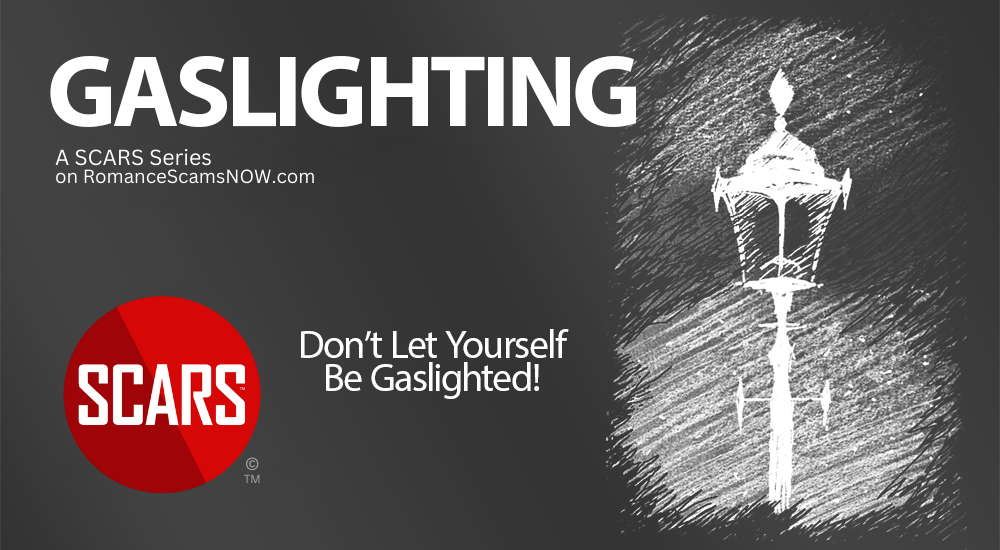
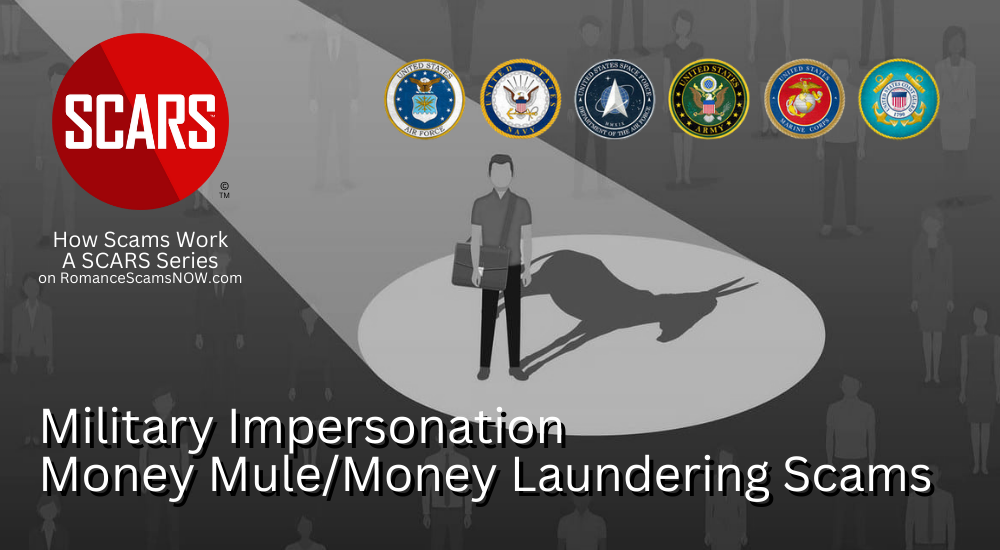
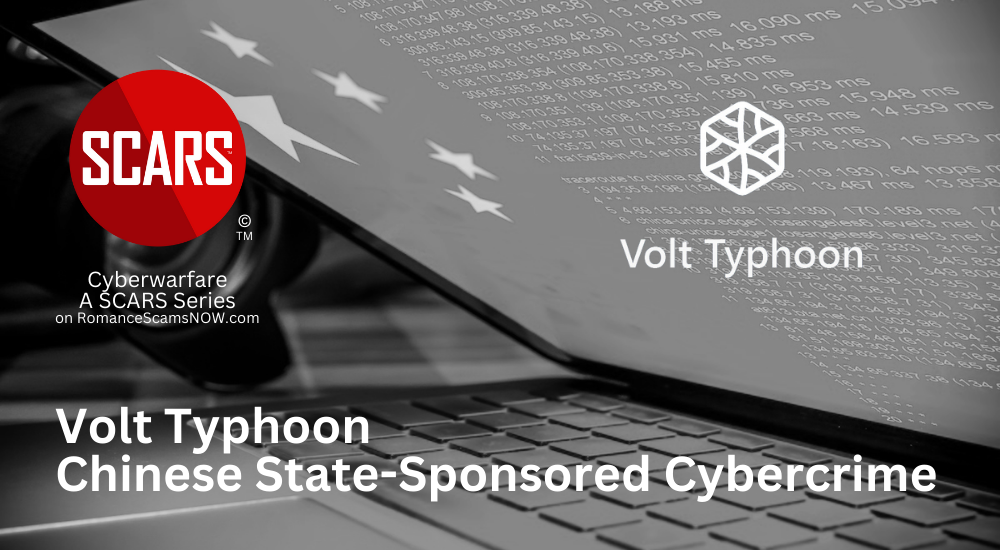
Please Leave A Comment - Tell Us What You Think About This!